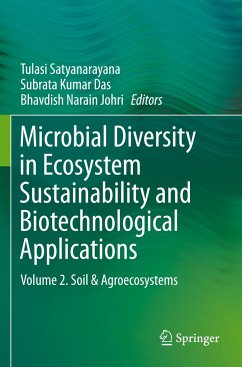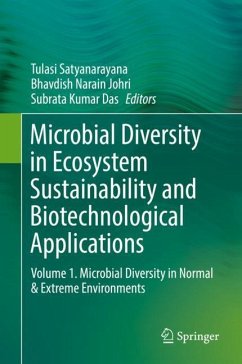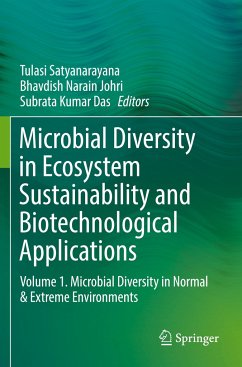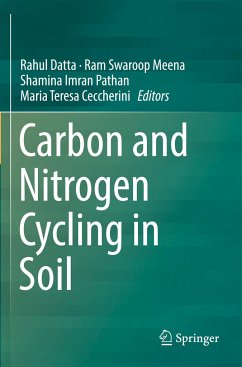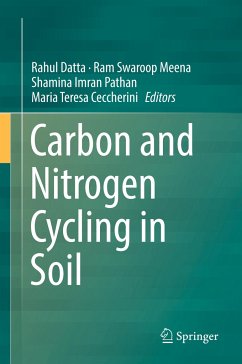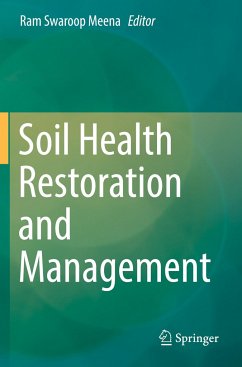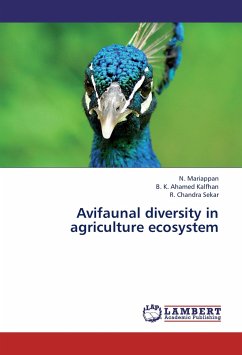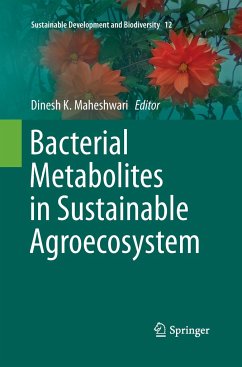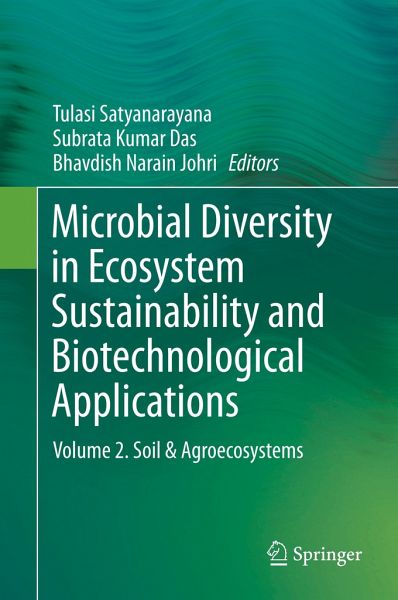
Microbial Diversity in Ecosystem Sustainability and Biotechnological Applications
Volume 2. Soil & Agroecosystems
Herausgegeben: Satyanarayana, Tulasi; Das, Subrata Kumar; Johri, Bhavdish Narain

PAYBACK Punkte
57 °P sammeln!
This volume comprehensively reviews recent advances in our understanding of the diversity of microbes in various types of terrestrial ecosystems, such as caves, deserts and cultivated fields. It is written by leading experts, and highlights the culturable microbes identified using conventional approaches, as well as non-culturable ones unveiled with metagenomic and microbiomic approaches. It discusses the role of microbes in ecosystem sustainability and their potential biotechnological applications. The book further discusses the diversity and utility of ectomycorrhizal and entomopathogenic fu...
This volume comprehensively reviews recent advances in our understanding of the diversity of microbes in various types of terrestrial ecosystems, such as caves, deserts and cultivated fields. It is written by leading experts, and highlights the culturable microbes identified using conventional approaches, as well as non-culturable ones unveiled with metagenomic and microbiomic approaches. It discusses the role of microbes in ecosystem sustainability and their potential biotechnological applications. The book further discusses the diversity and utility of ectomycorrhizal and entomopathogenic fungi and yeasts that dwell on grapes, it examines the biotechnological applications of specific microbes such as lichens, xylan- and cellulose-saccharifying bacteria and archaea, chitinolytic bacteria, methanogenic archaea and pathogenic yeasts.





